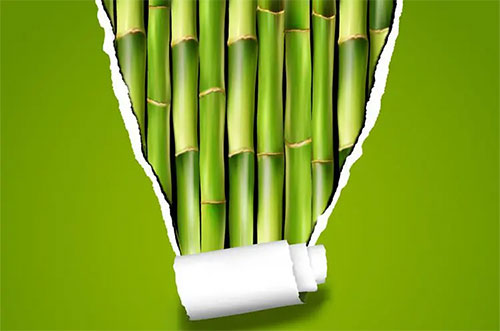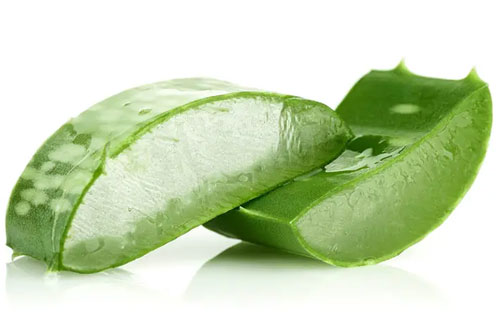+86-18927501869
- All
- Product Name
- Product Keyword
- Product Model
- Product Summary
- Product Description
- Multi Field Search
 English
EnglishViews: 1273 Author: Joe Publish Time: 2025-07-29 Origin: Site

In the myriad of neonatal skincare products, "Natural Baby Wipes" stand out as a product of paramount importance. Their role is not just functional - it's deeply intertwined with the health and well-being of the baby.
A reflection on the recent transformation: As skin irritations and allergic reactions in newborns become a growing concern, the need for natural solutions has never been more pressing. Natural baby wipes, devoid of harsh chemicals, are rapidly becoming the first line of defense against potential skin issues.
Newborn skin is 30% thinner than adult skin, making it vulnerable to irritation from synthetic materials. 【Clinical studies show】 that natural bamboo fiber wipes reduce redness by 62% compared to standard wipes. Parents seeking gentler alternatives often ask: 【What ingredients should you avoid?】
Delving briefly into the fragility of newborn skin, characterized by its thinness, sensitivity, and permeability. These attributes not only emphasize its vulnerability but also highlight the need for products that respect its delicate nature.
The overarching implication: Anything in contact with a baby's skin, especially frequently used products like wipes, should be chosen with the utmost care, ensuring minimal chemical exposure and maximum gentleness.
A deep dive into the physiology of newborn skin: its unparalleled delicacy, heightened sensitivity, and increased permeability compared to adult skin.
The intersection of these attributes with the products used: how the choice between "Natural vs. Organic Baby Wipes" can make a significant difference in the well-being of a newborn's skin.
While both natural and organic baby wipes offer benefits, it's essential to understand their distinct differences and what each brings to the table.
A brief overview of the criteria that classify wipes as either "natural" or "organic" and the subsequent implications for neonatal skin care.
The heightened need for gentle care: Emphasizing the role of carefully chosen baby wipes in protecting and nourishing the fragile skin of newborns.

Introduction to substrates: Their role as the primary structure of wipes and how they dictate the wipe's texture, strength, and absorption capacity.
Discussing the substrates prevalent in natural baby wipes, contrasting them with those in more conventional products.
Cotton: Celebrated for its softness and hypoallergenic nature, making it an ideal choice for sensitive newborn skin.
Bamboo: Boasts natural antibacterial properties and a silky texture, coupled with its rapid growth rate, making it a sustainable option.
Wood Pulp: Often used as a blend with other fibers, offering excellent absorbency and a smoother wipe experience.
Biodegradability: Highlighting the rapid decomposition of natural fibers compared to synthetic materials, reducing environmental impact post-disposal.
Sustainability: Emphasizing the renewable nature of plant-based fibers and the reduced carbon footprint associated with their production and harvesting.
The ripple effect: How choosing natural substrates in baby wipes can contribute to broader ecological conservation efforts.

Understanding that while the substrate provides the structure, it's the liquid formulation that imparts the essential characteristics to the wipe.
Highlighting the departure from conventional formulations that may contain alcohol, parabens, and synthetic fragrances, to more skin-friendly alternatives in natural wipes for babies.
Aloe Vera: Renowned for its moisturizing and anti-inflammatory properties, offering soothing relief.
Chamomile: With its natural calming effects, it's ideal for reducing redness and irritation.
Vitamin E: Acts as a potent antioxidant, protecting delicate skin from environmental stressors.
Glycerin: A natural humectant, it helps maintain the skin’s moisture balance.
Spotlighting the absence of potentially harmful agents like phthalates, alcohol, and artificial fragrances in natural wipes for babies.
Discussing the inherent sensitivities and peculiarities of newborn skin: its thin barrier, higher pH, and susceptibility to dryness.
How natural formulations, enriched with the above ingredients, cater to these specific needs, ensuring hydration, protection, and soothing relief.
Emphasizing the minimized risk of allergenic reactions and irritations with natural formulations makes them a preferred choice for newborn care.
Presenting data from clinical trials and observational studies that have compared the effects of natural/organic wipes with conventional alternatives.
Highlighting notable findings such as the incidence rate of diaper rashes, allergic reactions, and skin irritations among infants using different types of wipes.
Exploring the formulation of natural and organic baby wipes, emphasizing the omission of harmful agents like alcohol, parabens, and artificial fragrances.
Delving into the minimized risk factors: lower incidence of allergenic reactions, reduced skin irritations, and fewer reports of sensitization.
How the consistent use of natural and organic wipes can influence overall skin health in the longer term.
Natural wipes for babies discuss potential preventive effects against common neonatal skin conditions, like eczema or atopic dermatitis, by reducing exposure to potential irritants.

Elaborating on the broader environmental responsibility that comes with the production and use of natural and organic baby wipes.
Exploring the ecological footprints of natural and organic products versus their conventional counterparts: water consumption, land use, and greenhouse gas emissions.
Sourcing: Highlighting sustainable farming practices, reduced pesticide usage, and ethical sourcing of materials for organic and natural wipes for babies. Emphasis on renewable resources like bamboo or organic cotton.
Manufacturing: Discuss reduced carbon footprints, energy consumption, and waste production when producing natural and organic wipes. The role of green wet wipes manufacturing processes and sustainable packaging.
Usage: Reflecting on the minimized health risks, and reduced need for supplementary skincare products (like creams for rashes), which further reduces the environmental impact.
Disposal: Focusing on the biodegradability of natural and organic baby wipes, reducing landfill burden. The potential for composting and the role of sustainable packaging in reducing plastic waste.
Linking the choice of organic and baby wipe natural to global sustainability objectives: conservation of water resources, reduced chemical pollution, and combating climate change.
Advocating for informed choices: Encouraging consumers to recognize their power in driving market demand towards more sustainable products and practices.

Natural Wipes for Babies: In a world that's increasingly conscious about health and the environment, natural baby wipes have emerged and quickly become a top choice for many parents. These wipes are primarily crafted using ingredients derived from nature, avoiding common chemical additives and potential irritants like alcohol, artificial fragrances, and preservatives.
The core advantage of baby wipes naturally lies in their gentleness on the sensitive skin of newborns. Given that an infant's skin barrier is relatively thin and prone to external influences, choosing wipes devoid of harmful chemicals becomes paramount.
Additionally, many natural baby wipes utilize base materials that are organically or sustainably sourced, such as organic cotton or bamboo. This means they have a reduced environmental footprint during production and are often biodegradable.
In summary, baby wipe natural offer parents a solution that caters to their child's skin care needs while also resonating with their concerns for health and the planet.
Sywipe seizes every opportunity to use high-quality resources, including peer-reviewed research, to support the facts in our article. Learn more about our factory and how to keep the content accurate, reliable, and trustworthy.
1. 《How to the Selecting of Baby Wipes for Sensitive Skin?》
2. 《21 Best Baby Wipes for Sensitive Skin in 2023》
3. 《How to Choose the Best Natural Baby Wipes for Sensitive Skin?》
Sywipes is a professional manufacturer of baby wipes. According to clinical trials, phenoxyethanol is considered safe at concentrations less than 1.0%, as it is neither a primary irritant nor a sensitizer. However, in 2008, the FDA issued a warning to breastfeeding mothers not to use nipple cream containing phenoxyethanol. This is because the cream can be easily licked by the baby during breastfeeding, causing vomiting, diarrhea, and dehydration.
France has also suggested to the European Union that the maximum concentration of phenoxyethanol in childcare products for those under three years of age should not exceed 0.4%, and it should not be used in care products in the diaper area. It's important to consider that baby wipes, especially those used for hand and mouth, often touch the baby's lips. Some wipes even claim to be "edible for baby" or "for wiping mom's breasts." If these wipes contain phenoxyethanol, they may be ingested by the baby and affect their health.
Our Customers Always Come First
Trust is the Foundation of Our Service
sales@clean-wipe.com
sywipe@clean-wipe.com
Room 4611, No. 372 Huanshi East Road, Yuexiu District, Guangzhou,China.
+86-18927501869 / +86-20-81608597
/ +86-18927501869